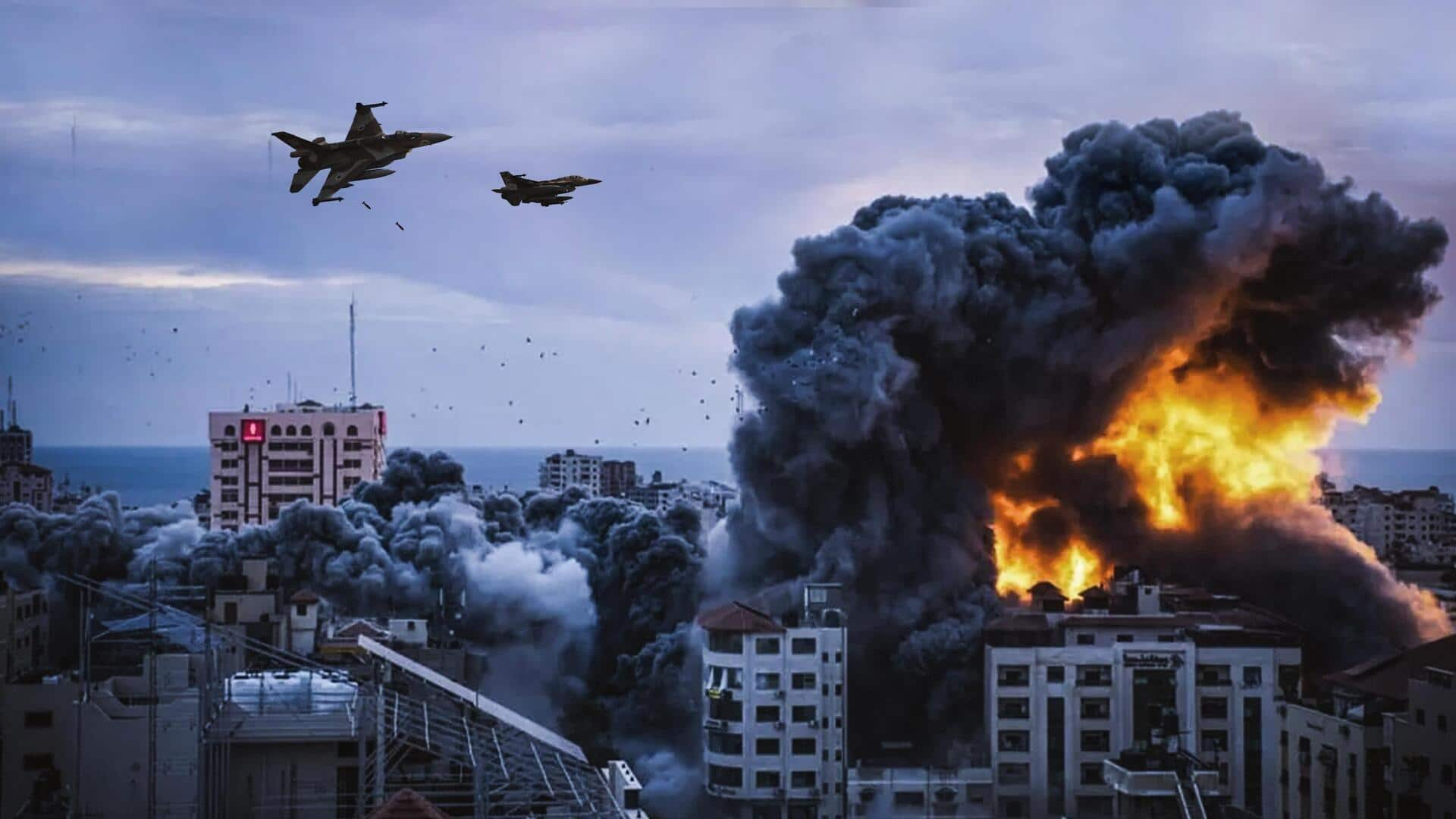
US strikes 85 Iran-linked targets in Iraq, Syria
What's the story
The United States (US) on Friday carried out major airstrikes across Iraq and Syria, hitting 85 targets linked to Iran's Islamic Revolutionary Guard Corps (IRGC) and the militias it backs, CNN reported. The 30-minute operation was in response to a drone attack by Iran-backed militias on a US military outpost in Jordan, which killed three American service members, the US military said. President Joe Biden emphasized that the US does not seek conflict but warned of a response.
Context
Why does this story matter?
On January 29, the drone attack by Iran-backed militias in northeastern Jordan, near Syria's border, killed three US service members and injured 40 others. The deaths in the Jordan strike were the first US military fatalities in the Middle East since the war between Israel and Hamas broke out on October 7. A US military official said there have been 166 attacks on US military installations since October 18, including 67 in Iraq, 98 in Syria, and one in Jordan.
Strikes
Know about US military response
Defense Secretary Lloyd Austin said the strikes were "the start" of the US response. Although the Pentagon didn't release data on the number of casualties or injuries, it termed the operation larger than previous attacks on Iranian-backed militias. Per officials, it targeted command and control operations, intelligence centers, rockets, missiles, unmanned aerial vehicle storages, and logistics and munition supply chain facilities. The US Central Command confirmed that the strikes were aimed at the IRGC Quds Force and affiliated militia groups.
Reactions
Reaction from Iraq, Iran to airstrikes
Iraq's Armed Forces spokesperson, Yahya Rasool, slammed the US for the strikes. He termed them a "violation of Iraqi sovereignty." Similarly, Iran reacted sharply to the US operation, with its President Ebrahim Raisi saying Iran will not initiate a war but will "respond strongly" to bullies. Mixed messages also emerged from the militias. Kataib Hezbollah announced the suspension of military operations against US forces, while Al-Nujaba militant group leader Akram Al-Kaabi vowed to continue attacking US targets.
Conflict
Ongoing negotiations, regional tensions
The US airstrikes come at a time when negotiations are underway for the release of hostages in Gaza. This is done under a deal and a potential ceasefire between Israel and Hamas. Negotiators have agreed on a broad framework, but finalizing the details is expected to be challenging. It remains to be seen how these recent airstrikes will impact the situation in the Middle East and the ongoing efforts to establish peace.
Pressure
Biden faced pressure over attacks
Biden had been under pressure for a response to the Jordan attack, as Republicans accused him of leaving American forces vulnerable. On Tuesday, Biden said he had decided on the course of action after the Jordan drone attack. Addressing reporters, he said the US is not seeking an expanded conflict in the Middle East, echoing sentiments from other officials that the nation does not seek war with Iran. However, he said the US "will respond" if anyone harms an American.